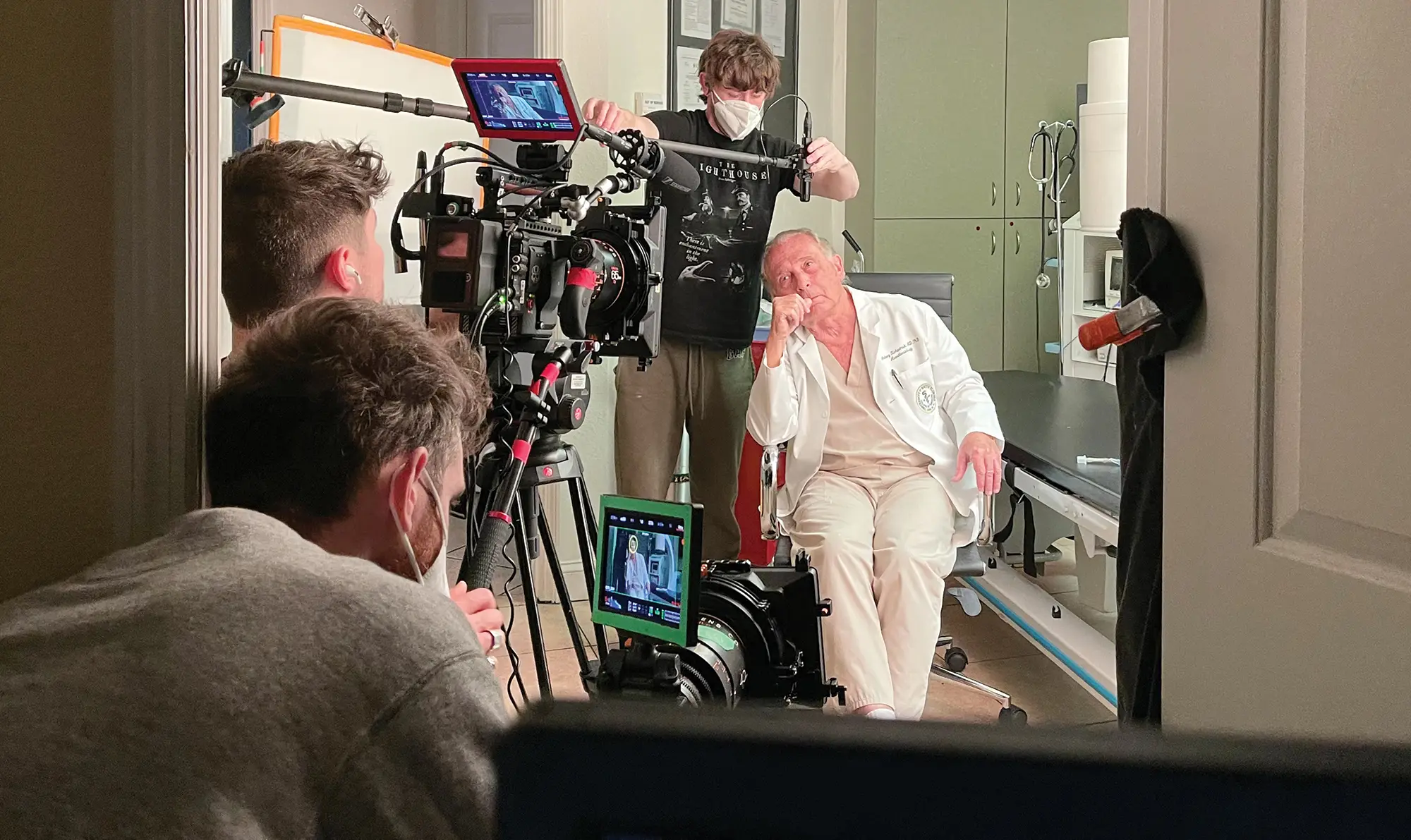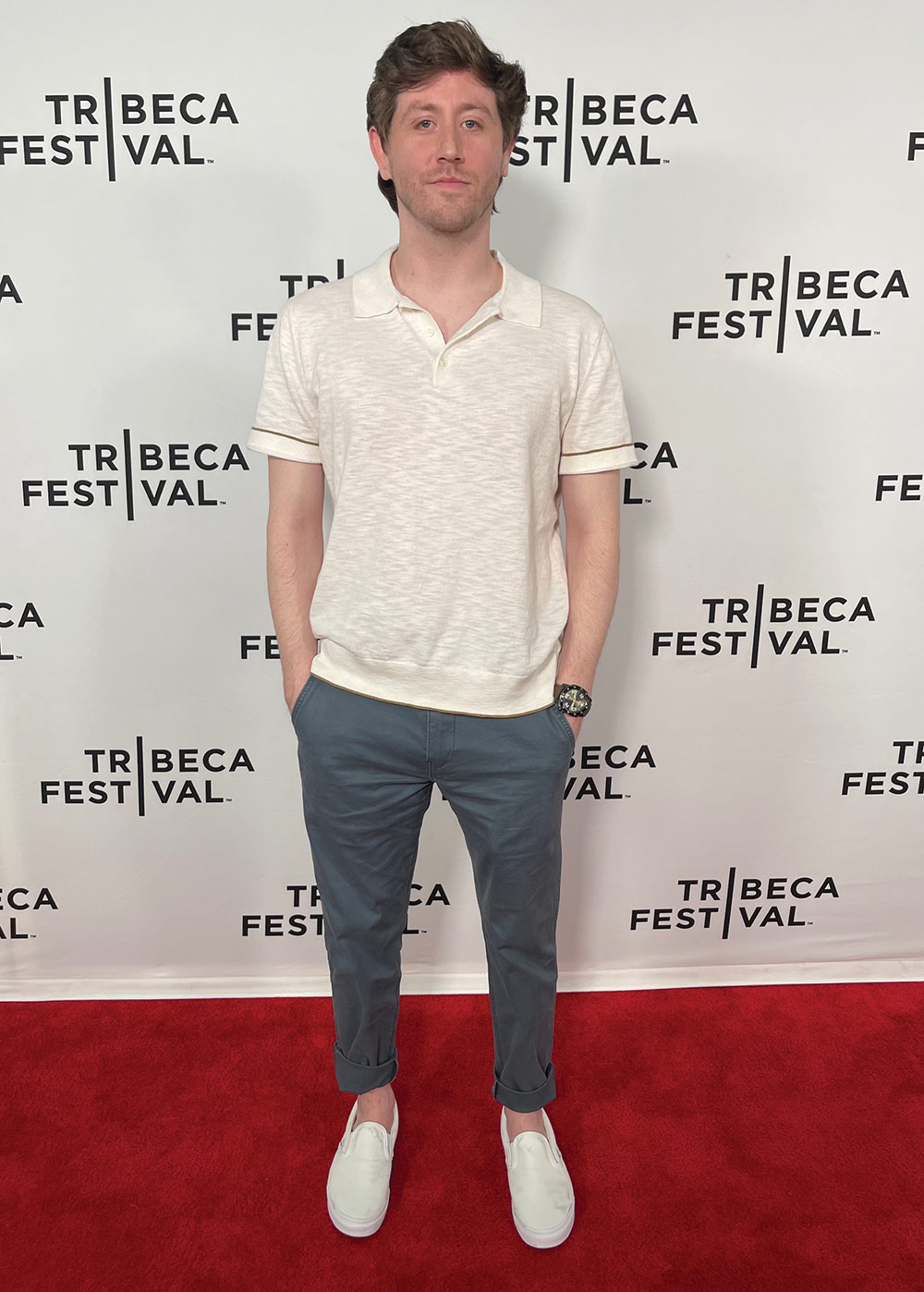‘Take Care of Maya’

Brendan Ginnetty worked alongside his brother Patrick, the cinematographer for the documentary. Patrick Ginnetty worked with the NBC television show “Law & Order: Special Victims Unit” for six years and has been working in the film industry for 20 years with clients as big as HBO and now Netflix.
“I knew that if Brendan was the guy doing the sound, that it was going to be pretty flawless, and probably add to the sense of intimacy and being pulled into the story,” Dr. Ginnetty said.
“Take Care of Maya” is a heart-wrenching story about Maya Kowalksi, who at 10 years old in 2015, began experiencing debilitating chronic pain. The girl’s parents took her to a doctor, who diagnosed and treated her for complex regional pain syndrome.
At one of Maya’s hospital visits, a pediatrician wrongly suspected that Maya was instead a victim of Munchausen syndrome by proxy, and she was removed from her parents’ custody for five months.
During that time, her mother Beata committed suicide, seeing that as the only way they would let Maya leave the hospital. In November, a Florida jury ordered Johns Hopkins All Children’s Hospital in St. Petersburg to pay $261 million in damages to Maya’s family.
The film shows the struggle the family went through in dealing with the tragic loss of Beata, Maya’s ongoing health challenges and the family’s fight to gain justice through the court system.
“About a year before Maya started production filming, there was a cover story in People’s Magazine about Maya’s story of Munchhausen syndrome by proxy and the false accusations,” Brendan Ginnetty explained.
He said the documentary has opened a dialogue for doctors in the healthcare system to be more transparent.
“Take Care of Maya” was produced by Story Syndicate, which Brendan Ginnetty describes as a “very socially conscious, socially political progressive company that does stories that have a pulse in a heartbeat in that capacity. They loved the idea.”
Due to court trial appeals by the hospital, the production process stretched to a lengthy four years.

The trial finally started in late September 2023.
As sound engineer, Brendan Ginnetty set up all the microphones and recorded everyone who spoke, then did post-production work, mixing and helping on the editing floor.
“Every night after the shoots, we’d have a round table to discuss the general narrative and where it’s going and ethical questions and to see what’s the best approach,” he said. “It was an ‘all hands on deck approach’ where the best idea in the room won and we were just trying to option what would make the best documentary.”
His dad looks at it from a psychologist’s perspective.
“Because of the subject matter, it was emotional, it was something they both were passionate about and cared about deeply because of the experience and tragic loss this family went through,” Dr. Ginnetty said of his sons. “It was emotionally draining and grueling to be so close to such sadness and despair.”
Netflix offered to pay for psychotherapy for all on the production crew during the filming, because they knew that the subject matter was intensely dark. It presented moralistic challenges too, since the documentary comes down heavily on the side of the family and is highly critical of the CPS system and of the hospital.
“Munchhausen syndrome by proxy is a very real thing and one needs to be concerned about it. There’s also a danger, any of us in our field can get so calcified and rigid in our view and our protocol that we make every case fit our paradigm or fit the mold. And I think probably some of that happened here,” Dr. Ginnetty said. “You don’t want to play God, but sometimes you’re almost asked to.”
Dr. Ginnetty thoroughly enjoyed watching his sons work together on such an impactful project. A few years after graduating from St. Joseph’s, Brendan Ginnetty began working with his brother Patrick on a web series that led to other freelance projects.
Dr. Ginnetty fondly recalled going to the movies with his sons when they were young.
“I was sitting there eating popcorn, enjoying the story, and both Patrick and Brendan experienced film in a different way. They would be watching it and say, did you see that boom, the microphone that briefly appeared in the top left frame, that’s a mistake. It was fun to see them excel in a field that I knew nothing about.”